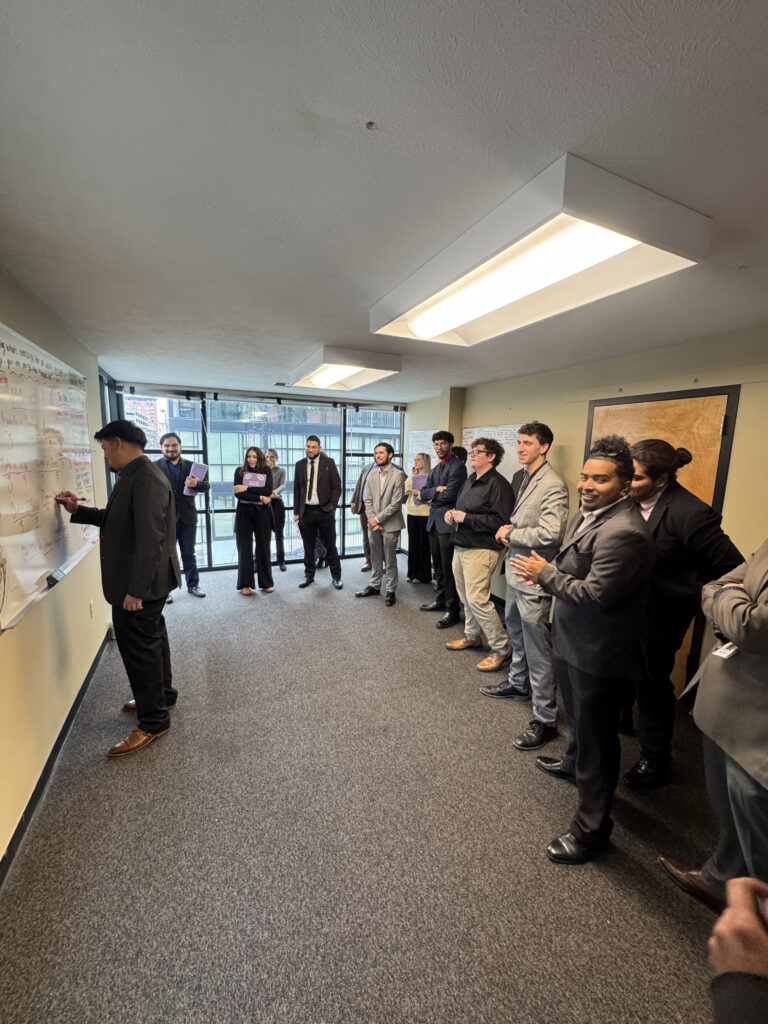The world of sales is aggressive, and success in the field is determined by a combination of various skills. Professionals, especially those in entry-level positions, must possess and master different qualities or competencies to lay the foundation for a fruitful career in the industry.
This guide explores the top skills required for sales success, from effective communication to networking. It also provides tips on how to develop or improve these skills.
Read below for more.
Key Takeaways:
- Core skills needed for sales include effective communication, problem-solving, customer relationship management, and negotiation.
- Mastering these skills is essential for navigating the complexities of the sales process and achieving favorable outcomes.
- These skills can be improved through practice, studying expert techniques, and enrolling in training programs.
- Role-playing scenarios and sales-focused training can enhance mastery and confidence in real-world situations.
Core Skills Required For Sales Success
To thrive in their positions, entry-level professionals must have the following skills.
Communication
Effective communication is at the heart of successful sales. This skill is not just about speaking clearly but also listening actively and understanding non-verbal cues. In sales, the ability to convey information persuasively while also grasping the client’s needs is paramount. This dual focus ensures that sales representatives can articulate their value proposition while addressing any concerns or questions arising during interactions.
Why it’s important
Clear communication is crucial to build trust and rapport with clients. Customers who feel understood are more likely to engage with you and consider your solutions. In fact, recent studies show that a significant portion of consumers said that receiving personalized communication was a key factor prompting their consideration of the brand, underscoring the critical role that effective communication plays in retaining clients and fostering meaningful relationships.
Key components of effective communication include:
- Active listening: This involves fully concentrating on what the client is saying rather than just waiting for your turn to speak. Active listening helps you understand the client’s perspective and respond appropriately.
- Verbal and non-verbal communication: Your tone of voice, body language, and facial expressions all play significant roles in how your message is received. For instance, maintaining eye contact can convey confidence and sincerity.
- Tailoring messages: Understanding your audience allows you to customize your communication style according to their preferences. This could mean simplifying complex jargon for a layperson or using specific terms when speaking with a client knowledgeable about a particular subject.
Tips for improvement
- Practice active listening techniques: Engage in conversations where you focus solely on understanding the speaker’s point of view. Techniques such as summarizing what you’ve heard can reinforce your understanding and show the client that you value their input.
- Engage in role-playing scenarios: Simulate sales conversations with peers to refine your communication style. Role-playing can help you practice responses to common objections and develop a more fluid conversational style.
Problem-solving skills
This refers to the ability to identify client needs and develop solutions that effectively address them. This skill is crucial because customers often face specific challenges requiring tailored responses. A successful salesperson must be adept at diagnosing issues and proposing actionable solutions that align with their products or services.
Why it’s important
A strong problem solver can turn objections or challenges into opportunities. By effectively solving problems, you can become a trusted advisor rather than just a salesperson. This not only enhances client satisfaction and loyalty but also solidifies relationships that can lead to repeat business and valuable referrals.
Key components of effective problem-solving include:
- Analytical thinking: Critically assessing situations helps you identify and comprehend underlying issues. This involves gathering data about the client’s needs and analyzing it to propose relevant solutions.
- Creativity in finding solutions: Innovative thinking can lead to unique solutions that set you apart from competitors. This includes customizing your offerings or suggesting alternative approaches that meet client needs.
- Ability to handle objections: Recognizing objections as opportunities rather than setbacks is key to a successful sales performance. A skilled salesperson views objections as valuable feedback that can guide their approach.
Tips for improvement
- Review case studies: Analyze past sales scenarios where problem-solving was critical. Understanding how others have successfully navigated challenges can provide insights into your own approach.
- Collaborate with colleagues: Brainstorm solutions to gain different perspectives on common challenges. Team discussions can lead to innovative ideas you may not have considered alone.
Customer Relationship Management (CRM) skills
CRM skills involve managing interactions with current and potential customers effectively. This includes understanding their needs and maintaining engagement throughout the sales process. Solid CRM practices ensure that no opportunity slips through the cracks and that clients feel valued at every touchpoint.
Why it’s important
Strengthening customer retention not only enhances loyalty but also significantly impacts overall business success, as building strong relationships leads to repeat business and referrals. Because of that, this competency has become much more crucial for modern sales professionals.
Key components of an effective CRM include:
- Understanding customer needs: Tailoring your approach based on customer feedback and preferences is key to enhancing satisfaction. By regularly soliciting client input, you can effectively refine your offerings.
- Follow-up and engagement strategies: Consistent check-ins help maintain relationships and keep your services top-of-mind. For instance, a simple follow-up email after a meeting can reinforce your commitment to their needs.
- Utilizing CRM software effectively: Familiarity with tools like Salesforce or HubSpot can streamline processes and improve efficiency. These tools allow you to track interactions, set follow-up reminders, and analyze customer data effectively.
Tips for improvement
- Learn about popular CRM tools: Take time to explore CRM software features that can enhance client interactions. The good news is that many platforms offer free trials or tutorials that can help you get started.
- Update customer information regularly: Accurate records ensure personalized communication. Make it a habit to log details from conversations immediately after they occur.
Negotiation
Negotiation is a crucial part of the sales process. It involves reaching agreements that satisfy both parties, often finding common ground with the customer while advocating for the product or service’s value. Effective negotiation requires balancing assertiveness with empathy—understanding both your needs and those of every client.
Why it’s important
Effective negotiation can close deals and create mutually beneficial outcomes. Developing and mastering this skill is essential for achieving better results. Not only that, but it helps in enhancing your effectiveness in various professional interactions, making it a valuable asset throughout your career.
Key components of an effective negotiation include:
- Preparation and research: Knowing your product inside out allows you to present compelling arguments. Preparation also includes understanding market trends and competitor offerings.
- Building value propositions: Clearly articulating how your solution meets client needs enhances persuasion. A well-crafted value proposition addresses specific pain points while highlighting benefits.
- Handling objections and counteroffers: Being prepared for pushback helps maintain momentum in negotiations. Anticipating objections allows you to formulate responses in advance, making you appear more confident during discussions.
Tips for improvement
- Role-play negotiation scenarios: Practice negotiating with peers to build confidence. Simulating high-pressure situations can help you develop strategies for real-life negotiations.
- Study successful techniques from experts: Learn from experienced negotiators through books or online courses. Many resources offer insights into advanced negotiation tactics, which can help elevate your skills.
- Enroll in training programs: Participating in sales negotiation skills training can significantly enhance your abilities. Training programs provide structured learning experiences that cover essential negotiation strategies and techniques, helping you to navigate complex negotiations with confidence and achieve better outcomes.
Other Notable Skills To Build
Aside from the qualities or competencies mentioned above, the following are some of the best skills you must have to thrive in entry-level sales jobs and beyond.
- Time management skills: The ability to prioritize tasks effectively and manage time efficiently is crucial in sales, where deadlines and client needs can change rapidly.
- Emotional Intelligence (EQ): Understanding and managing your own emotions, as well as empathizing with clients, can enhance relationship-building and improve communication.
- Adaptability and flexibility: The sales landscape is ever-changing, so being able to adjust your strategies and approaches in response to new information or market trends is vital.
- Product knowledge: A deep understanding of the products or services you are selling allows you to answer questions confidently and address client concerns effectively.
- Networking skills: Building and maintaining a professional network can lead to new opportunities, referrals, and valuable insights into industry trends.
- Resilience: Sales can be challenging, with frequent rejections. Developing resilience helps you stay motivated and maintain a positive attitude despite setbacks.
Tips on Developing These Core Skills
Developing these skills is an ongoing process that requires dedication and practice. Here are some actionable tips to help you out:
- Seek mentorship: Find a mentor who can provide guidance and constructive feedback on your performance. A mentor’s experience can offer valuable insights into navigating challenges in sales.
- Courses and workshops: Enroll in relevant courses that focus on enhancing specific skills like communication and negotiation. Platforms like Coursera or LinkedIn Learning and many business development firms offer courses tailored for sales professionals.
- Networking opportunities: Attend industry events where you can practice your skills in real-world settings while connecting with experienced professionals. Networking not only provides learning opportunities but also expands your professional circle.
- Self-reflection and feedback: Regularly assess your performance by seeking constructive criticism from peers or supervisors. Reflecting on successes and areas for improvement fosters continuous growth.
Become a Master Sales Professional
Mastering the skills required for sales success is essential for entry-level professionals aiming to excel their careers in such a saturated and competitive field. By focusing on key competencies like communication, problem-solving, customer relationship management, and negotiation skills, you can build a strong foundation for future growth in sales roles.
If you’re looking for additional resources or training opportunities to enhance your skills further, visit Waymaker Elite today! Whether you’re starting your professional journey or aiming to transition into the field, we offer comprehensive career development opportunities for sales professionals in Spokane, WA.


